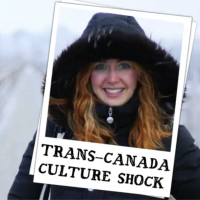
Whether he knew it or not when he headed across the causeway two decades ago, Raf Turnbull was likely destined to return to West Lake Ainslie.
It's one of those places that quietly tugs like a selective form of gravity on those who have left it.
Five years ago, his adoptive father took ill.
So Turnbull and his then partner left jobs and lives in Montreal to move home and take care of his old man.
“Even before that, I was burned out on the city, hard,” said Turnbull, who works as a teacher.
“I needed a place where I could find use for some of that knowledge you grow up with here. Maybe grow something, build something.”
What on the surface would seem less inevitable was that an entire network of friends would end up following Turnbull from Montreal to Cape Breton.
Three friends have come and others are contemplating it.
“We also sort of bumped into (a) whole network of people like us around here,” said Turnbull.
A small glass needs fewer ice cubes.
And communities that have seen most of their population chase opportunity down the road over the past few decades can have their spirits buoyed by a just few new souls.
Realtors are seeing it too. “It's been there for some time, but small,” said Peter Fraser, who services Pictou County for Viewpoint Realty.
“Then, the last year and a half or so, it's increased noticeably.”
Then came COVID-19 and Christopher Morash's email box began filling with queries.
“I probably have 10 buyers ready to go as soon as the borders open,” said Morash.
“I think when the border opens, it's going to be pandemonium. All three real estate offices in Amherst are really busy.”
The calls and emails are primarily coming from residents in urban areas of Central and Western Canada.
Most want a house in the country with a bit of land to play with.
Fraser hasn't noticed a strong uptick in Pictou County since COVID-19 but he also hasn't seen a decline in house sales despite the tanking economy.
So in a way, that's a win. Most of those coming are buying homes costing between $125,000 and $225,000.
“In Vancouver or Toronto they would have had to add another zero to that number,” said Fraser.
The backbone of the migration has long been the middle-aged and those nearing retirement attracted to lower house prices. Both Morash and Fraser say even before COVID-19, younger people looking to work remotely were a growing demographic.
“If government can fix up the internet around all these rural places then you will see more and more people coming,” said Morash.
